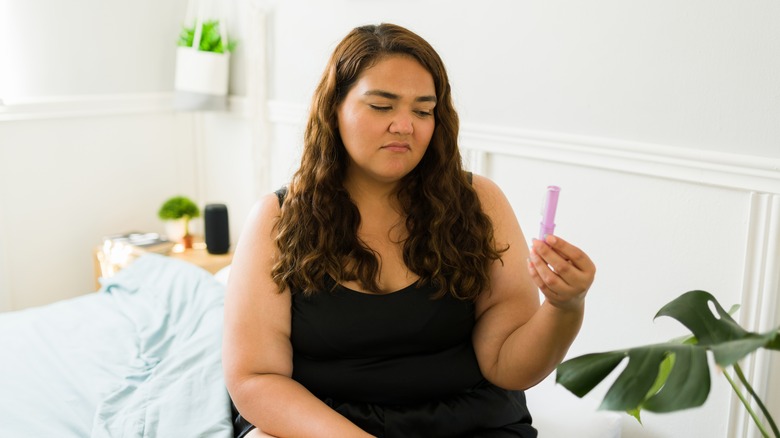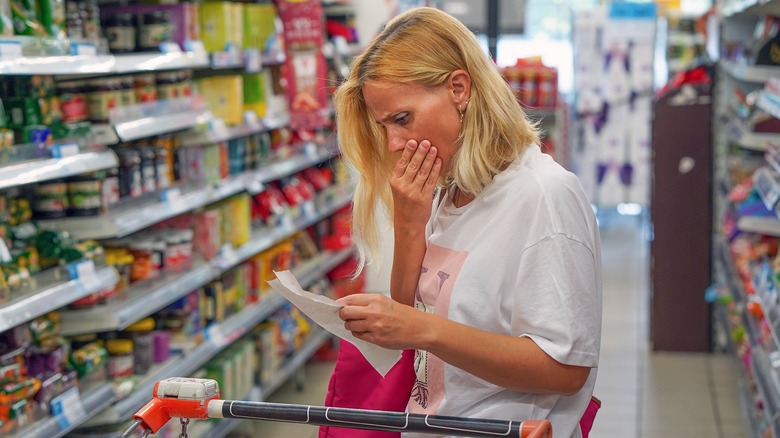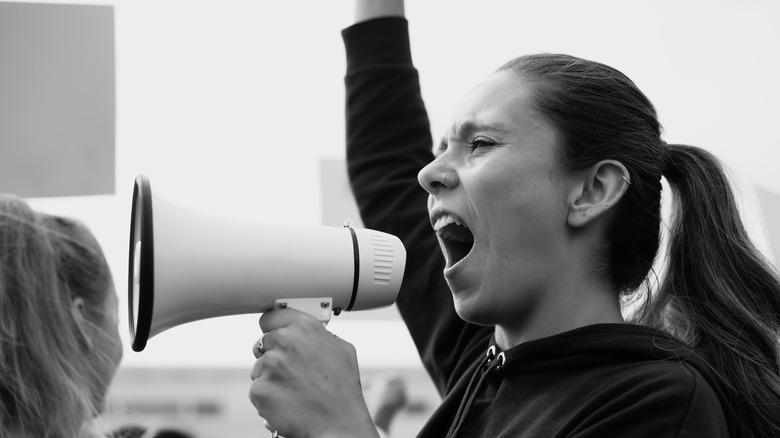'Free Bleeding' Is Trending & It's Another Stark Reminder Of Pervasive Period Poverty
The idea of bleeding through one's clothes during that time of the month is the stuff of nightmares; however, a new wave of people who menstruate are now blazing the free bleeding trail. Free bleeding is the act of menstruating without the use of more traditional methods of period care and, as evident in the recent TikTok trend, is taking off for many as a viable alternative to pads, tampons, and cups. While some choose to free bleed with the help of recent technological advancements in period underwear, others simply use regular underwear or nothing at all. This is especially relevant for those looking to reduce their plastic waste and pursue more eco-friendly alternatives to typical disposable menstrual hygiene products. However, for some, it is increasingly the only option they have.
While an individual's choice of period care is a deeply personal one, it also comes with an economic component that can make the choice extremely difficult, or even nonexistent, for many. Since there are no necessary products to purchase for free bleeding it can be an extremely economically viable option for those who might struggle to afford increasingly expensive menstruation hygiene products. So, while many TikTok users might have the privilege of choice within the period care discussion, many of those affected by period poverty aren't left with any alternatives.
What is period poverty?
An estimated 500 million people are affected by period poverty globally. Without the means to financially afford more traditional period care products, free bleeding becomes less of a personal choice and more of a sheer necessity.
An article from the American Medical Association laid out that a person that menstruates can expect to pay, on average, roughly $1,800 in their lifetime for menstrual hygiene products like tampons and pads. Their Government Relations Advocacy Fellow, Reilly Bealer, further clarified, "These products are not defined as essential, which means they are not covered by federal food stamps programs and other relief programs ... This leaves people with a choice between buying tampons or providing other necessities for their families." This is, of course, a choice no person should have to make.
The lack of medical classification was especially troubling during the COVID-19 pandemic when menstrual hygiene products would have been tax-exempt if only they had been categorized as essential during the public health crisis. This, combined with the extraordinary job loss at the time made the pandemic even more difficult as increasing numbers of menstruators were pushed into poverty. More recently, increasing inflation has made period care more expensive than ever before with a 10% increase in tampon prices in 2022.
What we can do about period poverty
While free bleeding might seem like a financially viable alternative for menstruators, the downsides to this form of period care can be significant. Many who free bleed by choice actively do not leave the house during the course of their period. This can be extremely impractical and damaging to those with in-person jobs and responsibilities. Additionally, those with heavy menstrual flows or other medical concerns might not be able to participate in free bleeding. While many would agree that de-stigmatization of menstruation is important, many menstruators (especially those affected by period poverty) are not in the social or economic position to carry that burden. Many need help.
Getting menstrual hygiene products categorized as medically essential is a vitally important step in combatting period poverty. Another way to combat period poverty centers on state legislation. Currently, menstrual hygiene products are still subject to luxury sales tax (the "tampon tax") in 22 states, which further increases the barrier to accessing these products for many people. Similarly, despite the negative education implications for students who are unable to attend classes during their periods, only five states currently require schools to provide access to free menstrual products.
Removing unnecessary menstrual hygiene product taxes, expanding free access to products in schools, and changing the categorization of these products to medically necessary are all key steps to fight the period poverty crisis affecting the millions of menstruators in the United States. While free bleeding can absolutely be a personal choice for some, for far too many others it is a requirement of circumstance with harmful effects on a person's self-esteem, work/school performance, and even health.


